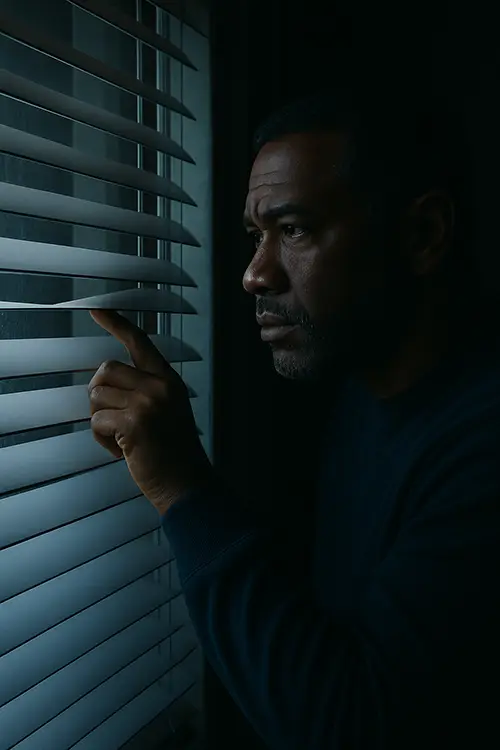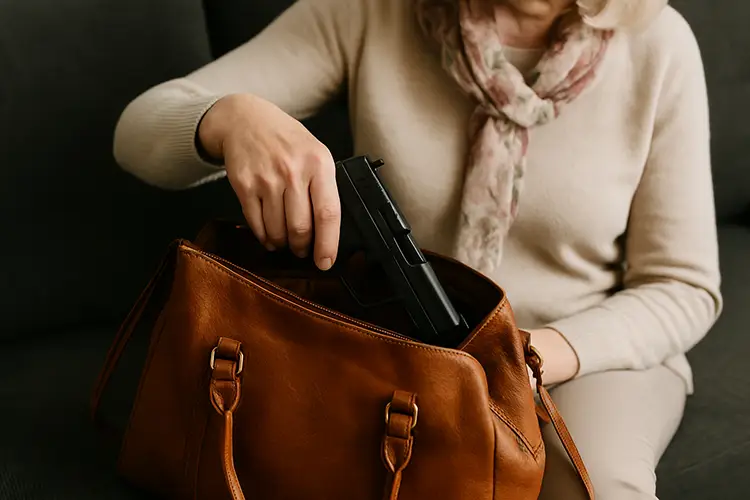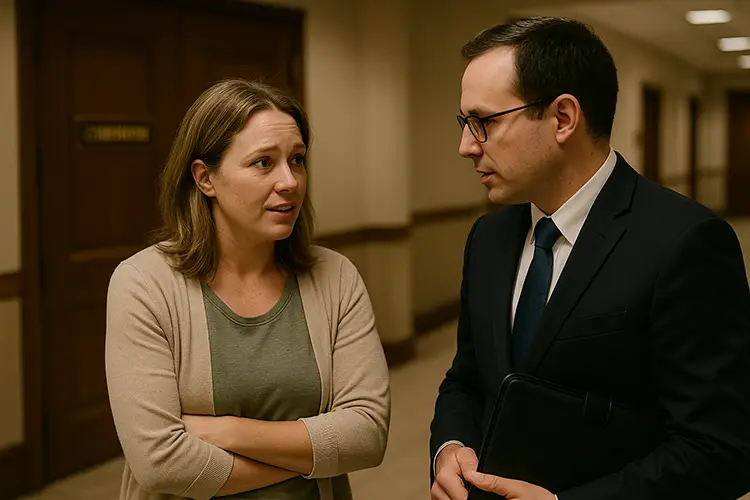Chaos Reigns: Gun Control and Your Rights in the Triad Part 1
In the quiet corners of Guilford County, where the hum of Greensboro’s streets gives way to the rural whispers of Alamance and Randolph Counties, the echo of distant tragedies reminds us how fragile peace can be. Gun control ignites ire, dividing hearts across political lines, fueling debates after every heartbreaking headline. Yet, amid the clamor, our role at Dummit Fradin remains steadfast: not to wade into politics, but to arm you with clarity on your rights under the law. Especially as Supreme Court rulings reshape the Second Amendment‘s landscape. That timeless clause,
“A well-regulated Militia, being necessary to the security of a free State, the right of the people to keep and bear Arms shall not be infringed.”
once seemed confined to federal bounds, leaving states like North Carolina to chart their own course on gun regulations. But landmark decisions have upended that, rippling through local courts in Guilford, Alamance, and Randolph Counties, where concealed carry charges and firearm restrictions intersect with everyday lives. If you’re facing a concealed carry violation or questioning your gun rights amid a search that feels overreaching, know this: your story matters, and we’re here to defend it. Contact us today for a free consultation to explore how these evolving laws apply to your gun rights case.
The Cases Reverberating Across the United States
Heller: Self-Defense is Your Right
The turning point arrived in 2008 with District of Columbia v. Heller, a case that redefined self-defense as a “natural right” woven into our nation’s fabric, one that “shall not be infringed.” Justice Scalia’s deep dive into historical texts revealed that individuals, not just militias, have the right to possess “ordinary weapons” for the protection of themselves and their homes. In the Triad, this resonated deeply; imagine a Greensboro resident, denied a handgun license despite carrying one for work, mirroring Heller’s plight. The Court struck down D.C.’s handgun ban and trigger-lock mandates, affirming states could still curb “dangerous and unusual weapons,” bar felons or the mentally ill from ownership, and restrict carry in sensitive spots like schools. Yet, no clear roadmap emerged for lower courts, leading to a two-part test:
- Does the regulation touch Second Amendment territory?
- And does it advance an important government interest, like public safety, without overstepping?
This framework has guided numerous concealed carry defenses across North Carolina, where we’ve challenged overbroad restrictions, resulting in potential convictions being dismissed. Dive into our concealed carry charges page for strategies tailored to NC gun laws, your rights deserve vigilant protection; reach out now if a charge threatens yours.


McDonald: The 2nd Applies to State and Local
Two years later, McDonald v. City of Chicago extended Heller’s reach, incorporating the Second Amendment against states via the Fourteenth Amendment‘s due process clause: “…nor shall any State deprive any person of life, liberty, or property, without due process of law.“ Otis McDonald, a 76-year-old Chicagoan besieged by burglaries in his deteriorating neighborhood, couldn’t legally register a handgun under the city’s weapon’s ban. He was afraid for his personal safety, a plight echoed in many Triad area homes where rising property crimes heighten fears. The Supreme Court sided with him, affirming self-defense as “deeply rooted in this nation’s history and traditions,” binding states and localities to respect it. Popular at the time, with broad support from lawmakers, this ruling left room for State Regulations but offered scant guidance on their limits. In our local courts, it’s fueled challenges to gun ordinances, blending with Fourth Amendment protections against unreasonable searches, often the crux of concealed carry arrests during traffic stops. Explore our Fourth Amendment rights page to see how we’ve suppressed unlawfully obtained evidence from illegal searches, safeguarding Triad residents’ gun rights and your privacy.
Bruen: Concealed Carry Laws Everywhere Change
Over a decade passed before New York State Rifle & Pistol Association, Inc. v. Bruen (2022) addressed carrying beyond the home, striking down New York’s “proper cause” requirement for concealed permits, a relic demanding applicants prove a special need beyond the ordinary citizen. This ruling affirmed that the fundamental right of self-defense demands no special justification, resulting in a “shall issue” rather than a “may issue” stance on permits. The Court preserved Heller’s exceptions, denying firearms to certain criminals or the mentally ill, restricting sensitive places, but pivoted the test for constitutionality to “text, history, and tradition.” No longer a balancing act of interests; now, regulations must align with historical analogs.
Chaos ensued in lower courts, including ours in the Triad, as challenges flooded in against NC’s concealed carry laws. For those facing charges, this means analyzing each case to decide whether a stop lacked reasonable suspicion, tying into Fourth Amendment defenses we’ve wielded to reclaim seized weapons.


Range: Just Who Are “We The People”?
The questions deepened with Range v. Attorney General (2023), probing who qualifies as “the people” under the Second Amendment. Bryan Range, convicted of a nonviolent misdemeanor for falsifying food stamp applications in 1995, faced lifelong disarmament despite a spotless record since. The Third Circuit ruled broadly: “We the people” encompasses all citizens, barring disarmament absent a historical precedent. The government failed to prove an analog. They deemed the ban unlawful and created a “like Range” standard, nonviolent offenders with old felony convictions may now reclaim their weapons rights, under certain conditions. Still a boon for expungement cases we routinely handle.
Rahimi: Sometimes It’s About Saving Lives
Most recently, United States v. Rahimi (2024) tempered the tide of deregulation, upholding temporary disarmament under domestic violence protective orders when a credible threat exists. Rahimi’s repeated violations, firing at bystanders, and assaulting partners, highlighted the stakes, with the Court clarifying that regulations need only be “relevantly similar” to historical traditions, like surety bonds for the dangerous. In our counties, where firearms fuel domestic homicides, these safeguards protect survivors while affirming the rights of NC’s ordinary citizens. Advocates hailed it as common sense, consistent with Second Amendment history, even as dissenters critiqued Bruen’s framework.

Contact Us
These rulings aren’t distant echoes; they shape gun rights in Guilford, Alamance, and Randolph Counties daily, from concealed carry permits to Fourth Amendment challenges in searches yielding firearms. If a charge or denial has encroached on your rights, don’t stand alone. Our Greensboro gun rights attorneys have navigated these waters since before Heller, blending empathy with expertise to restore what’s yours. Contact us for a free defense analysis. Let’s honor your story and secure your future in the Triad.
For more information or for other service areas, please visit our Greensboro Office page.

